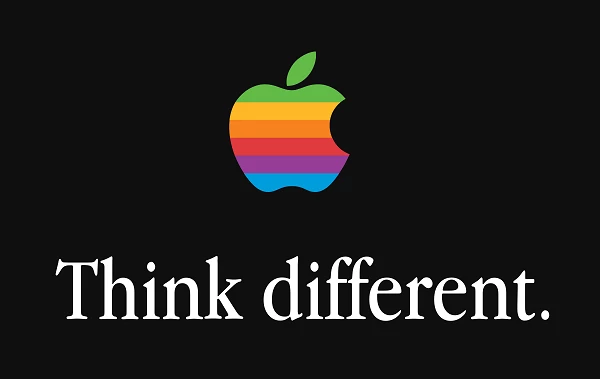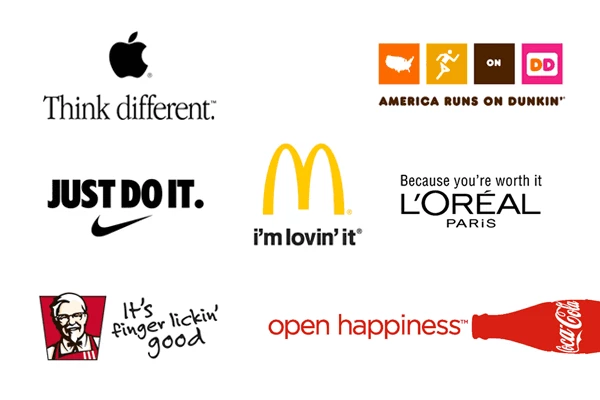A new study reveals the most effective phrases for brand slogans
Workers are less productive and make more typos on Friday, study finds / Mind-reading skills are crucial for effective cooperation
Previous research suggested that slogans should be creative or capture the essence of the brand, but the authors discovered that people prefer slogans that are shorter, omit the brand name, and use linguistically frequent and abstract words. In contrast, slogans are less well-liked, but are more easily remembered if they are lengthy, include the brand name, and contain uncommon and concrete words.
The paper, co-authored by Professor Zachary Estes, Professor of Marketing at Bayes, sheds light for the first time on the trade-offs brands must consider when developing a new slogan. In accordance with their strategic objectives, it also provides marketers with guidance on how to compose catchy or memorable slogans.

Words matter
To investigate the relationship between the length and composition of a slogan and its popularity, the researchers conducted a large multi-method study with 820 brand slogans and a number of experiments to determine the word properties that make slogans more effective. They polled approximately 1,000 students and online workers on how they felt about a subset of authentic brand slogans. In addition, they administered an unexpected recognition test to determine which slogans the participants remembered seeing earlier.
As a result of this experiment, the researchers identified five linguistic characteristics that had opposing effects on whether a slogan was liked and remembered: slogan length, brand name, word frequency, perceptual distinctiveness, and abstractness.
Longer slogans that included the brand name (Like a good neighbour, State Farm is there vs. Like a neighbour) were more easily remembered but less preferred. In contrast, slogans containing words that are more commonly used (bad breath vs. halitosis) and abstract (disease vs. halitosis) were more well-liked but less memorable.
This is because consumers focus less frequently and for a shorter duration on slogan words that are more common and abstract. As a result, consumers are more likely to like and click on advertisements with catchy slogans, but they are less likely to remember them accurately.
Capture the sensation
Using these findings, the researchers then attempted to improve existing brand slogans by making those that were disliked more fluent and those that were easily forgotten less so. In an experiment involving 243 students, it was discovered that slogans made more fluent (e.g., changing Listerine's slogan from 'Stops halitosis' to 'Kills bad breath') were more likeable but less memorable. In contrast, slogans that were made less fluent (e.g., changing Toyota's slogan from 'Get the feeling' to 'Snag the sensation') were better remembered but were disliked by consumers.
Another experiment using eye-tracking technology revealed that these changes occurred because participants looked longer and more frequently at disfluent words (such as sensation) than they did at fluent words (such as feeling). When the researchers improved the fluency of a slogan for a Facebook advertisement, the click-through rate increased by 28%, from 1.3% to 1.7%, reducing the cost-per-click.
Therefore, the authors suggest that brands that need to gain recognition should consider using words that are difficult to process, i.e., uncommon and concrete words, while established brands should consider using words that are simple to process, i.e., common and abstract words.

Meaningful distinction
Professor Zachary Estes, Professor of Marketing in the Bayes Business School (formerly Cass) Faculty of Management, stated: "Brands spend a lot of time and money creating and communicating slogans that consumers will like and remember. Importantly, the properties that make a slogan more memorable also make it less likeable, and vice versa.
"For slogans to be memorable, they should be relatively long, include the brand name, and contain uncommon and concrete words. For instance, BMW could make its slogan more memorable by changing it from 'The ultimate driving machine' to 'BMW is the peak driving machine,' but doing so would make it less appealing. In fact, our research can be viewed as the ultimate slogan generator, and we hope that it will assist marketers in selecting the most effective phrases for their brand."
Journal Reference: Brady T Hodges, Zachary Estes, Caleb Warren. Intel Inside: The Linguistic Properties of Effective Slogans. Journal of Consumer Research, 2023; DOI: 10.1093/jcr/ucad034
End of content
Không có tin nào tiếp theo



